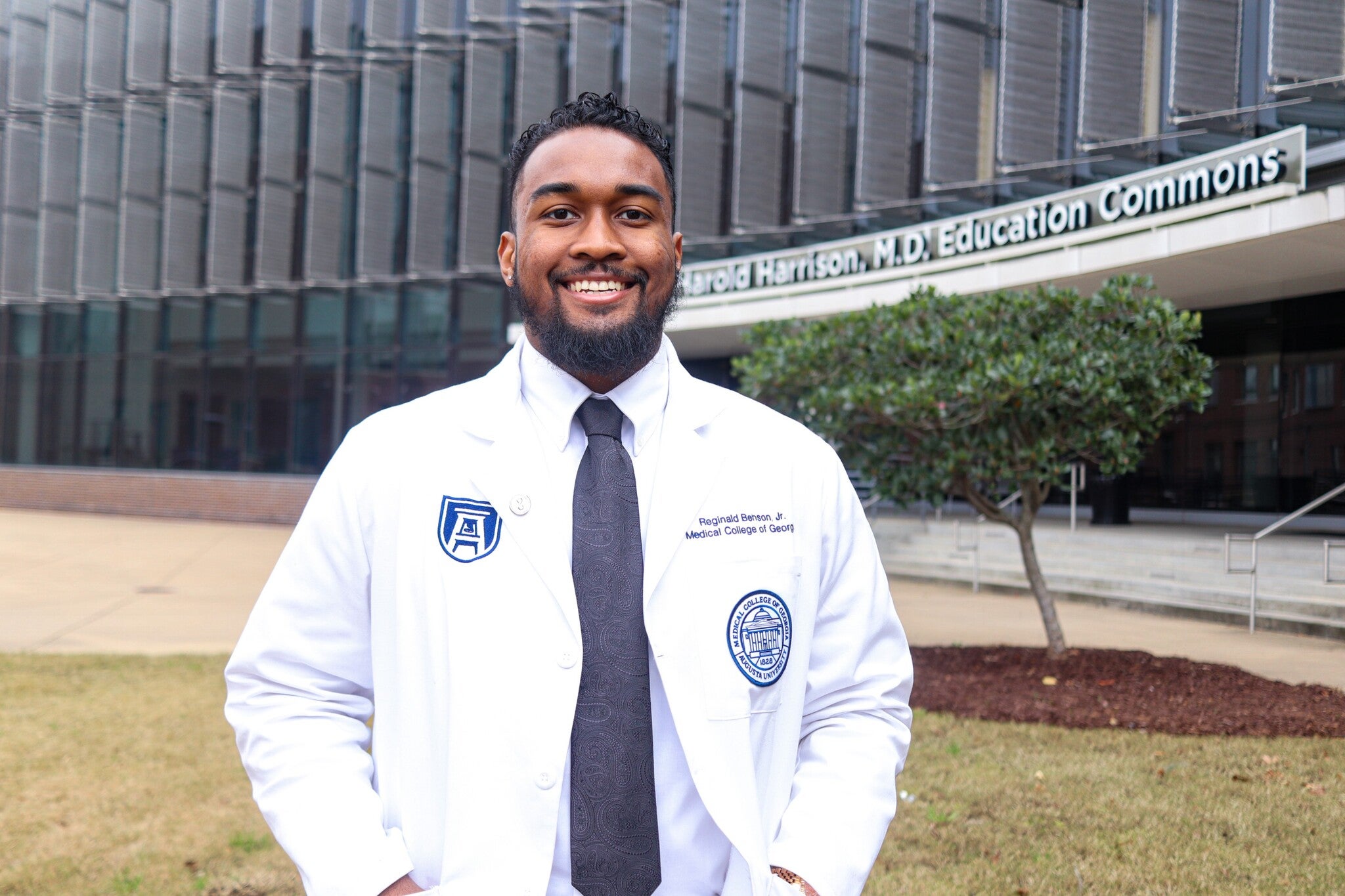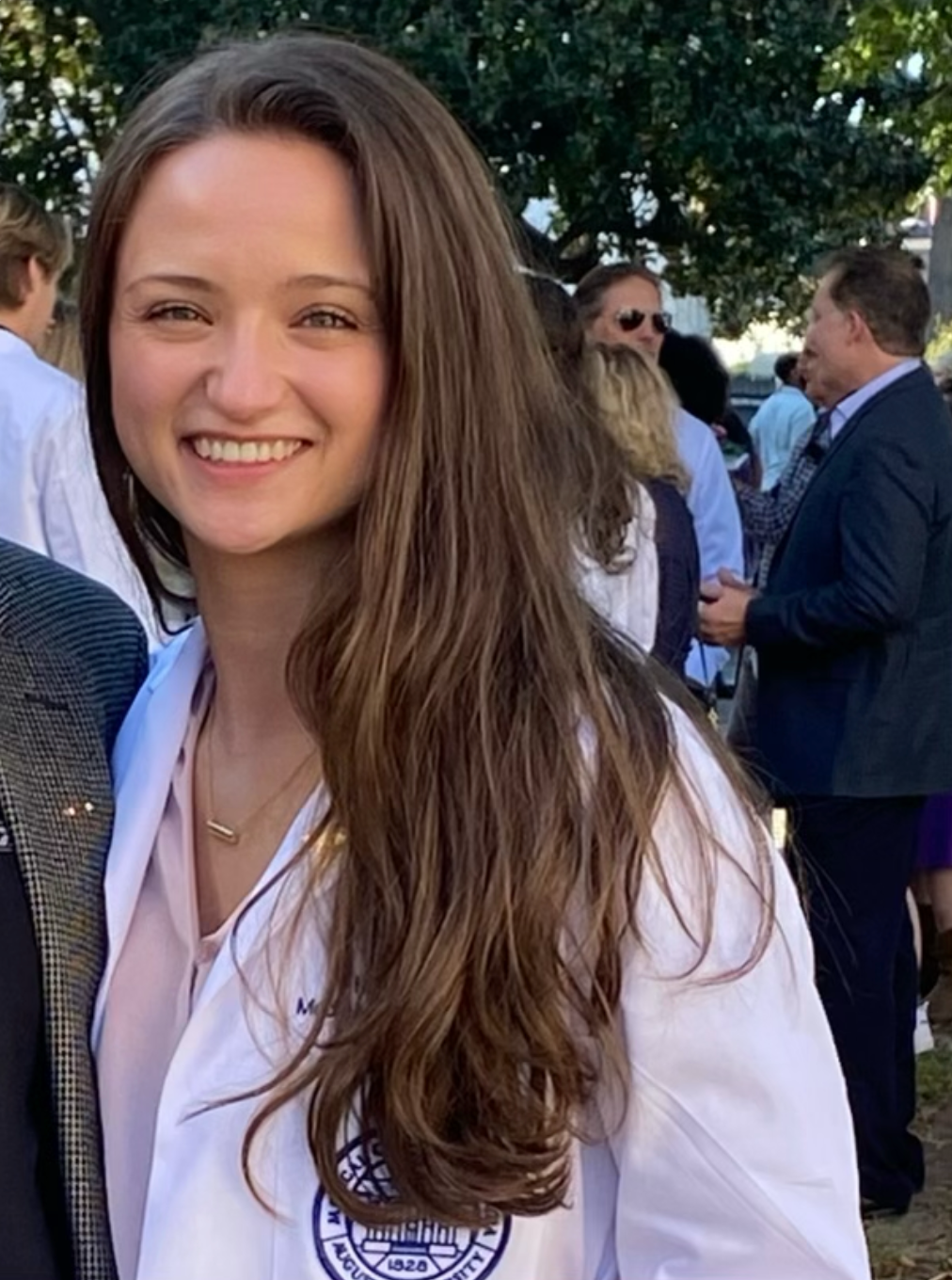The second class of Peach State Scholars, participants in the Medical College of Georgia’s MCG3+ Primary Care Pathway Program, was introduced at an Aug. 17 pinning ceremony.
The seven students follow in the footsteps of the inaugural class that began the program in 2021.
“It helps to have a class ahead of us just because even up to this point, I’ve messaged Claude (Bugheni) and Luis (Rodriguez) so many times, because they’re also doing emergency medicine. That’s what I’m interested in,” said Reggie Benson, one of the members of the new class. “I’ve reached out to them and asked about 3+ things, even applying to the program and they’ve been able to answer all of those.”

Joining Benson in the program is Raine Foulkes, who wants to provide primary care, specifically obstetrics and gynecological care in underserved parts of Georgia.
“And I was just looking for the quickest way to get me there, and how to get me there without debt. So basically, that’s why for me, is that it just helped me reach my goals sooner,” she said. “The residency application process is stressful. So, if you can streamline into one program, you know, you have less things to worry about than just your schoolwork.”

The program, which began in 2020, allows students to finish medical school in three years, rather than the four years it normally takes. In return, the students commit to serve in a rural or underserved area in the state, and they receive a scholarship for tuition.
The students will be able to choose what rural or underserved area they want from a list developed by MCG.
Benson and Foulkes are from Douglasville and Macon, respectively. However, Foulkes did her undergraduate studies at Georgia College in Milledgeville, a much smaller community.
“I had a teacher, and she was having trouble finding an OB-GYN in Milledgeville, that would help her get pregnant because of her BMI (body mass index). And she had to go all the way to Macon to find an OB-GYN who would care for her,” she said.
MORE: Sports medicine fellowship returns to the Medical College of Georgia
“I mean, for me, as cliche as it is, and you hear so many people say it, but just having the ability to help, Benson said. “We do a lot now, and we’re learning all the things we learned in medical school to get to that stage, but I’m really looking forward to finish in residency, and being the physician in these communities that has been lacking care for years now.”
Both realize providing care is not the only impact they can have. By working in a rural or underserved community they can become role models, leading young students to study medicine.
“I’ve been pursuing the primary care and medically underserved Georgia, since before I got to medical school, that’s been my plan,” Foulkes said. “Talking with different groups along the way, I feel like it has helped to me to be able to speak to other people coming up. And, you know, advocate for them, how it might be a smart decision for their career. So, I think it definitely puts us in a position to recruit more future health care workers to the areas.”
Funding for the program came from multiple sources. The Peach State Health Plan contributed $5.2 million in 2021 and Gov. Brian Kemp matched that. In the 2022 legislative session, lawmakers provided $8.7 million, an amount matched by the Medical College of Georgia Foundation.
Dana Lynn McIntyre is a general assignment reporter for The Augusta Press. Reach her at dana@theaugustapress.com










